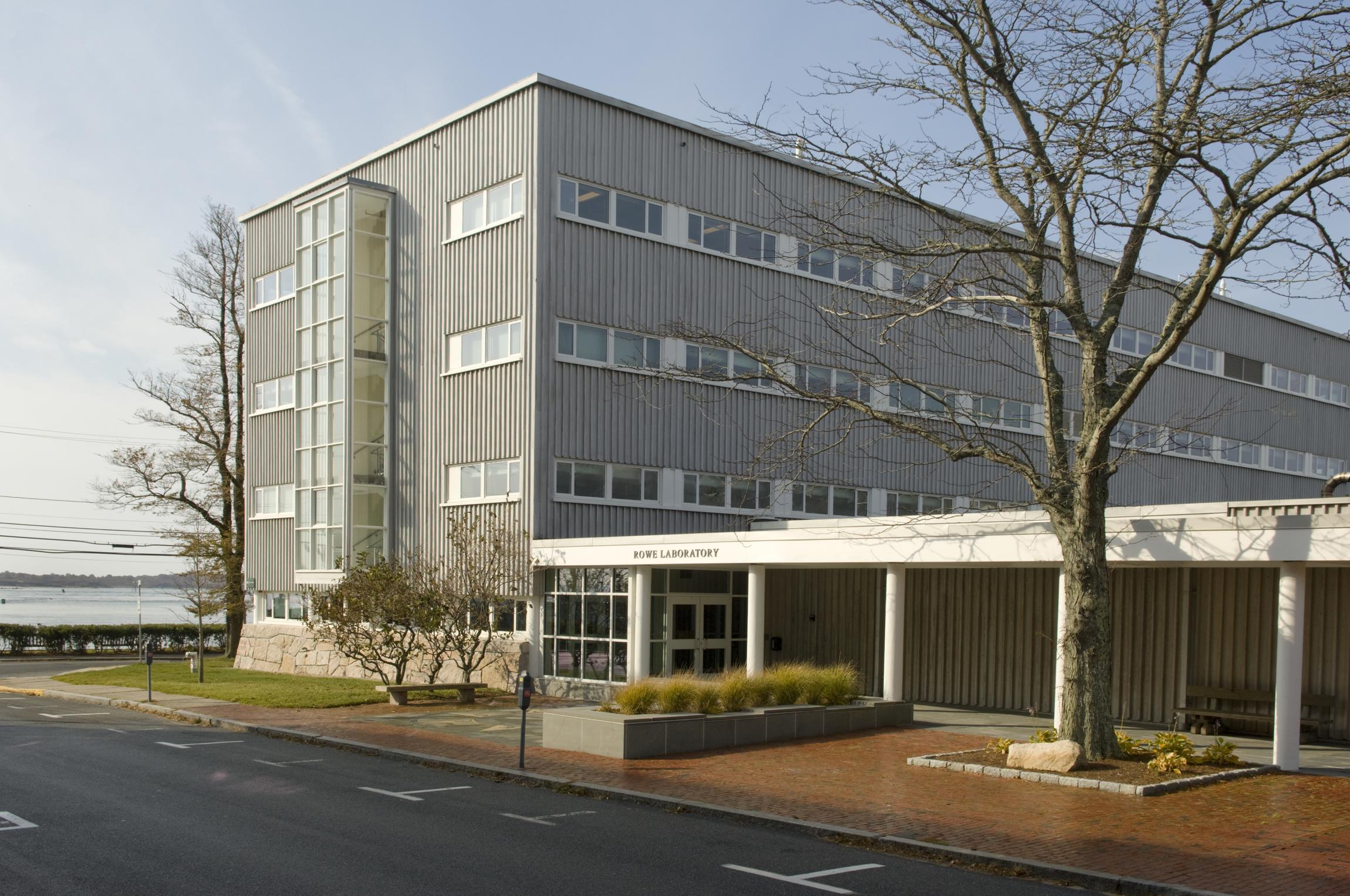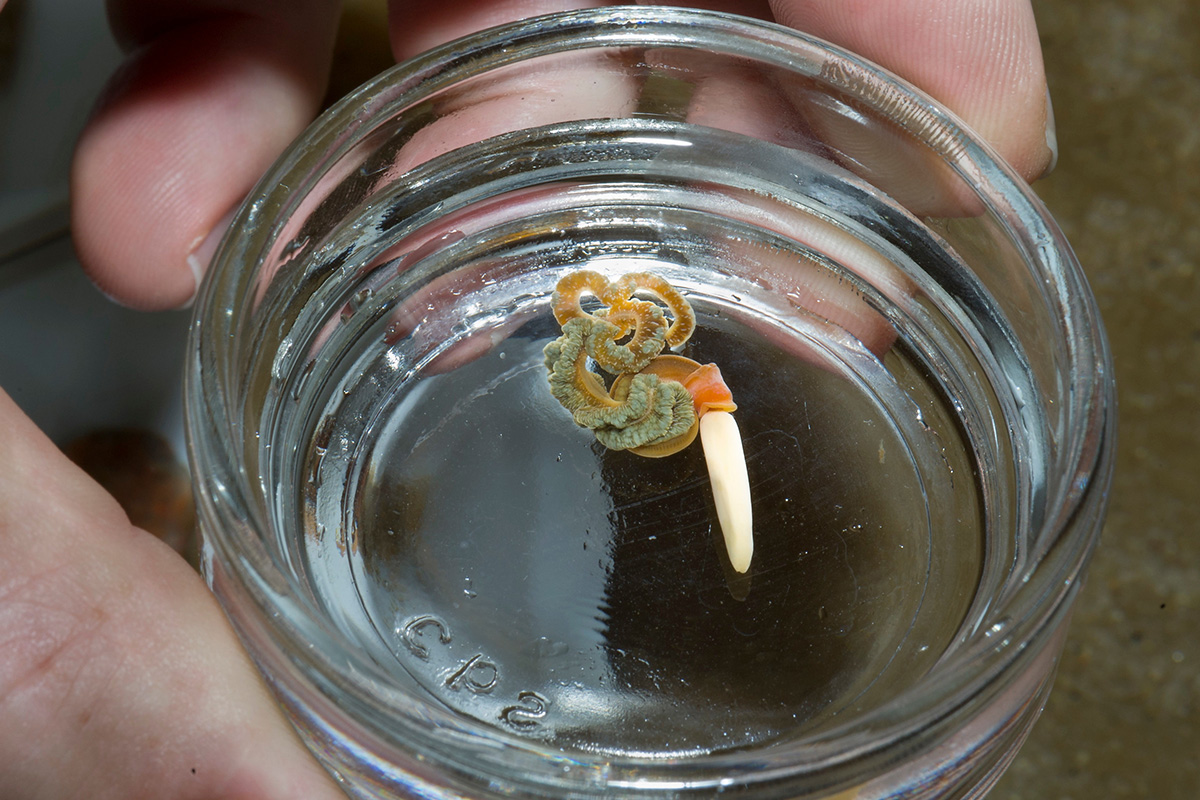MBL Announces Whitman Center Fellowships and Early Career Investigators

The Marine Biological Laboratory (MBL) is pleased to welcome the recipients of the 2021 Whitman Fellowships and Early Career Investigator Awards, which support 19 scientists to conduct innovative research for up to 10 weeks in the MBL Whitman Center.
Due to COVID-19-related restrictions, nearly all of the 2020 Whitman Fellows and Early Career Investigators deferred until this year.
 The MBL’s Rowe Laboratory, where many of the Whitman Center labs are located. Credit: Tom Kleindinst
The MBL’s Rowe Laboratory, where many of the Whitman Center labs are located. Credit: Tom Kleindinst“After last year’s restrictions, we are thrilled welcome this year’s Whitman Fellows,” says David Mark Welch, MBL Director of Research. “The magic of the MBL is its power to bring people together and offer scientists the space, time, and inspiration to pursue their research.”
In a typical year, nearly 300 principal investigators, staff, and research associates from institutions worldwide convene in the Whitman Center, which offers them an unparalleled environment for collaboration. The MBL provides access to a diversity of marine and other organisms for research, state-of-the-art instrumentation, innovative imaging technologies and research, genome sequencing, and modern laboratory facilities.
Due to ongoing social distancing guidelines, the MBL is hosting about two-thirds of the typical number of Whitman investigators this summer.
The Whitman Center scientists interact extensively with the dynamic and creative research environment at MBL, which encompasses its resident scientists and international faculty, students and lecturers who participate in MBL’s Advanced Research Training Courses.
Using a wide range of experimental research organisms, from sea anemones to sea robins and many organisms in between, this year’s Whitman Fellows are pursuing a variety of fundamental research questions related to cell biology and imaging, neuroscience, modeling, regeneration and development, evolution, genomics, marine biology and diversity, microbiomes, and more.
Several of the 2021 fellows are coming to the MBL for the first time to launch new projects and others will continue research established in the Whitman Center in prior years.
 The acorn worm (Saccoglossus kowalevskii) is being used as a research organism by one of this year's Whitman Fellows. Credit: Tom Kleindinst
The acorn worm (Saccoglossus kowalevskii) is being used as a research organism by one of this year's Whitman Fellows. Credit: Tom KleindinstThe 2021 Whitman Fellows and their proposed research projects are:
Karen Crawford, St. Mary’s College of Maryland
Beyond proof of concept: using CRISPR-Cas9 genome editing in Doryteuthis pealeii to ask important fundamental biological questions
André Fenton, New York University
Integrating across levels of biology to learn how memory is sustained
Suresh Jesuthasan, Nanyang Technological University
An investigation of the amphibian Leydig cell: from mucosal immunology to conservation biology
Veronica Martinez-Acosta, University of the Incarnate Word
Photoreception in Lumbriculus variegatus, an aquatic annelid
Gerardo Andres Morfini, University of Illinois at Chicago
Axon-specific effects of neuropathogenic proteins on kinase-based signaling and organelle motility
Anthony Moss, Auburn University
Establishing a standardized, reproducible system for the study of geotaxis and mood in ctenophores
Ed Munro, University of Chicago
Dynamics of gastrulation and neurulation in ascidian
Cortical septin dynamics during polarization in early C. elegans embryos
NIKON FELLOW
Indu Sharma, Hampton University
Bacterial cell shape and size as predation avoidance strategy in marine environment
E.E. JUST FELLOW
Ava Udvadia, University of Wisconsin – Milwaukee
Elucidating evolutionarily conserved mechanisms regulating successful optic nerve regeneration in vertebrate species
Gert Jan Veenstra, Radboud University
Evolution and development of cardiac cell types
Trevor Wardill, University of Minnesota – Twin Cities
Encoding 3D space in the cephalopod brain
Fiona Watson, Washington and Lee University
Optic nerve regeneration
Elizabeth Willbanks, University of California – Santa Barbara
Biogeography of rapid evolution in bacterial symbiosis: the pink berries revisited
Ricardo Zayas, San Diego State University
Functional analysis of the transcription factor COE in the regeneration of the nervous system of the sea anemone Nematostella vectensis
The 2021 Whitman Early Career Investigators are:
Vincent Boudreau, University of California – Berkeley
Stentor pyriformis: a novel cell biological model for uncovering evolutionary mechanics of photosynthetic activity regulation
Amy Herbert, Stanford University
Sea robins as a model for evolutionary trait gain in vertebrates
Dragomir Milovaniovic, German Center for Neurogenerative Diseases (DZNE)
Molecular detriments of synaptic vesicle clustering in the nerve terminals
Tetsuto Miyashita, Canadian Museum of Nature
Functions of the “isthmic organizer” and the head-trunk differentiation of the nervous system in a non-chordate deuterostome (hemichordate) Saccoglossus kowalevskii
Christina Zakas, North Carolina State University
Finding the genetic basis of developmental evolution